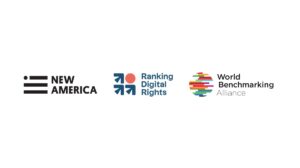This week, Ranking Digital Rights has submitted a set of recommendations in response to Facebook’s call for feedback on its Draft Charter for its recently proposed Oversight Board—an independent body to which people can appeal Facebook’s content moderation decisions.
Facebook has come under intensifying fire for the range of ways that its platform has been used to incite violence and spread disinformation campaigns—as well as for the lack of transparency around how it develops and enforces its Community Standards. These standards determine what types of content the company deletes from its platform and have a powerful impact on what viewpoints are silenced and whose, in effect, are amplified.
The direct link between Facebook’s content moderation policies and its users’ right to freedom of expression are a longstanding concern of internet activists and watchdog groups, including Ranking Digital Rights. In April 2018, in response to mounting pressure, Facebook published its internal guidelines for how it enforces its Community Standards. It also launched a new appeals process for users whose content may have been wrongfully removed.
These are both laudable improvements, but a far cry from what is needed to ensure adequate freedom of expression protections for Facebook’s over 2 billion users worldwide. The 2019 RDR Corporate Accountability Index, published on May 16, revealed that Facebook’s grievance and remedy mechanisms—including its appeals process for content removals—were among the weakest of any company in the RDR Index, even after introducing improvements to its appeals process over the last year.
The Draft Charter to which we have responded outlines Facebook’s proposal for the creation of the Oversight Board, with questions and considerations on the Board’s membership and role in the appeals process. We commend Facebook for publicly disclosing and seeking input on the Draft Charter for its Oversight Board, and welcome the opportunity to help inform and improve its content moderation policies and appeals processes.
The 2019 RDR Index findings offer a roadmap for how Facebook can and should improve its practices. Our recommendations submitted to company representatives this week highlight the need for Facebook to clarify the Oversight Board’s role in implementing the company’s commitment to respect human rights. We believe that clearly grounding the Oversight Board’s mandate in international human rights standards is essential given Facebook’s struggle to grapple with how to make decisions affecting users’ freedom of expression, and how Facebook users’ speech affects the rights of others on the platform.
We also stress the need for the Oversight Board to contribute to the company’s human rights impact assessment process, which should include assessments of how the content and enforcement of the company’s Community Standards affect the human rights of users and communities around the world. The Oversight Board should also be empowered to make recommendations regarding the company’s Community Standards and processes for enforcement. In addition, we urge the Board to regularly publish data about the nature and volume of its decisions.
Recommendations submitted by other concerned stakeholders emphasize the high stakes involved in Facebook’s content moderation decisions and its ability to impact users’ rights around the world. David Kaye, the UN Special Rapporteur on freedom of opinion and expression, submitted a letter to Mark Zuckerberg urging Facebook to include human rights principles in the Board’s review standards, noting that “…company standards based on “vague assertions of community interests” has “created unstable, unpredictable and unsafe environments for users and intensified government scrutiny”—the very problems that the creation of the Board seeks to address.” We wholeheartedly agree with these recommendations. Ranking Digital Rights is also a signatory to a joint statement with recommendations from civil society, investors, and academics.
As findings from the 2019 RDR Index show, most companies are not transparent enough about who has the power to control what they can say or see online, even as government pressure on companies to control online speech increases globally. Facebook’s proposed Oversight Board is an opportunity for increased transparency and accountability over the company’s own actions to police content on its platform. We look forward to the company’s responses to the feedback it has received during the public consultation process.





